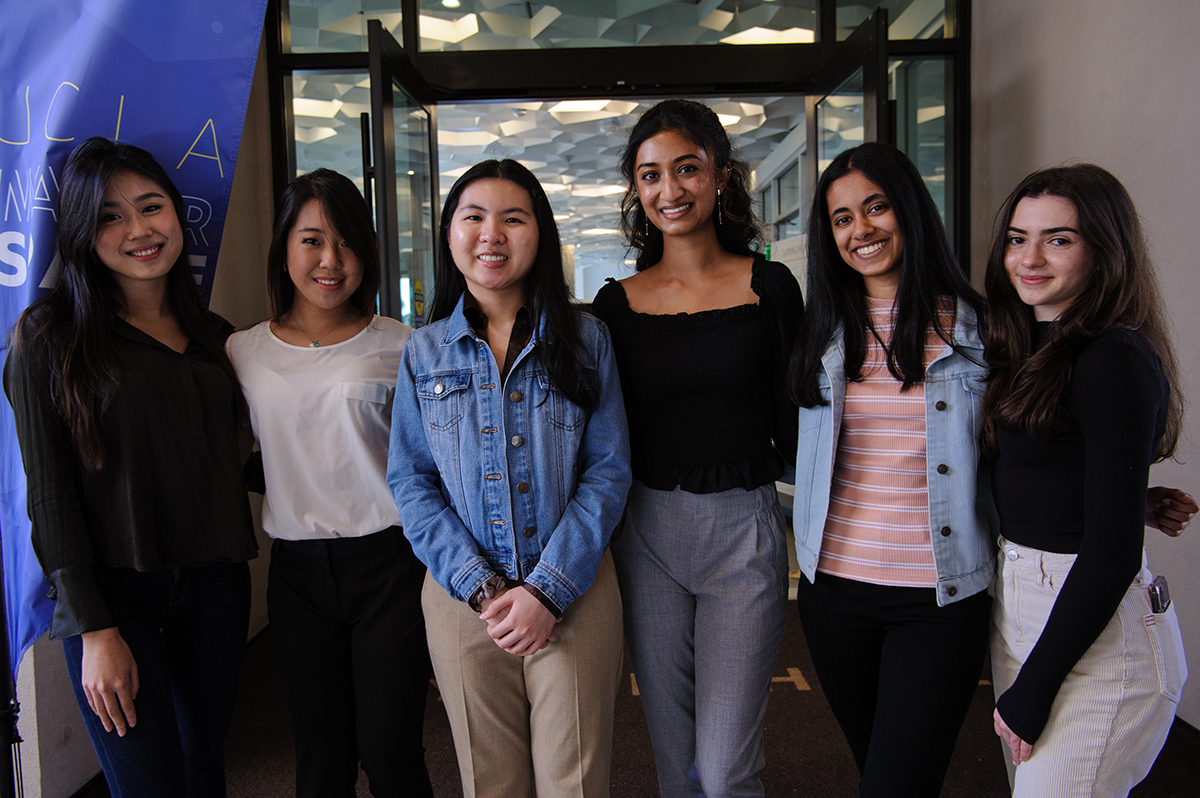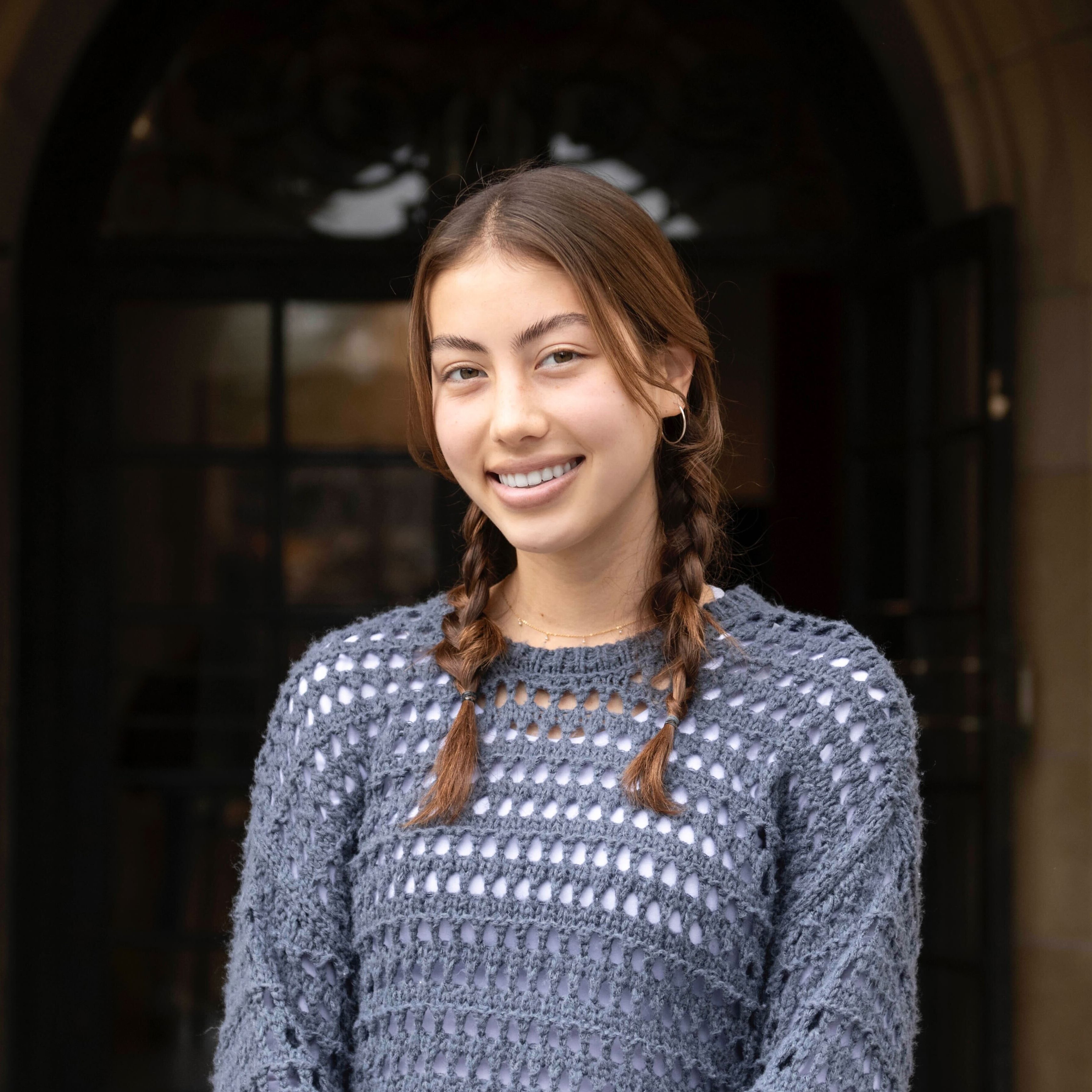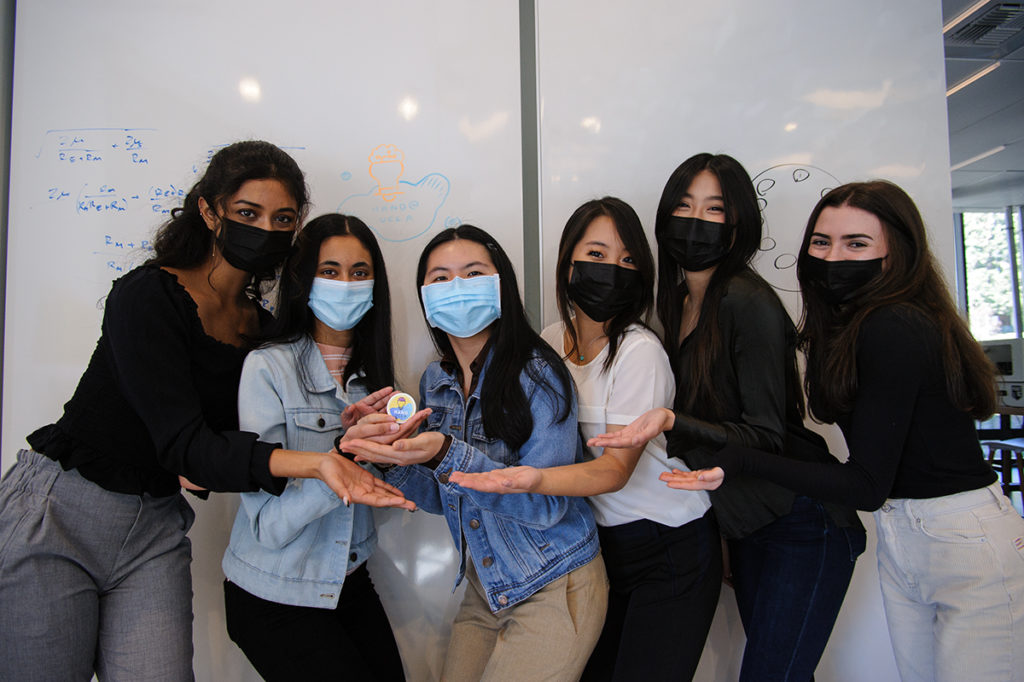UCLA club lends a hand to address neurological diseases via innovation, awareness

Members of the High-tech and Neurological Disorders club stand in front of the UCLA MakerSpace. The student organization started in fall 2020 and works to educate the community about neurological diseases. (Chelsea Westman/Daily Bruin staff)

By Lyah Fitzpatrick
March 30, 2022 3:55 p.m.
This post was updated March 30 at 11:17 p.m.
Seeking an outlet between remote classes during the pandemic, third-year human biology and society student Tiffany Chen started a club in fall 2020 to address neurological diseases.
The club, High-tech and Neurological Disorders at UCLA, has a twofold mission: bringing awareness to neurological diseases and designing innovative solutions for the challenges accompanying these disorders.
“Starting this club has really allowed me to connect with many students on campus from various backgrounds but all sharing this similar passion of innovation,” said Chen, the president of HAND.
Members of HAND have created podcasts, hosted journal clubs and organized events with various guest speakers, Chen said.
Aarti Jain, vice president of education at HAND, said she hopes these efforts not only educate their members about neurological disorders but also prepare them for research opportunities, careers in medicine and future mentorship. Jain added that their educational efforts have also allowed members to connect with the greater Los Angeles community.
The organization was able to visit Parkinson’s Community Los Angeles’ Young Onset Support Group in March 2021, said PCLA Vice President Judy Yaras. In October, Yaras and Travis Robinson – a mountaineer and photographer with early onset Parkinson’s disease – invited HAND members onto their podcast “I’m Not Dead Yet!” In turn, HAND invited Yaras and Robinson onto the HAND podcast in March 2022 to discuss navigating life with Parkinson’s and overcoming barriers.
“These are the people that are going to make a difference in the lives of the next generation,” Yaras said. “They’re already working on making a difference for the lives in this generation.”

HAND does not solely focus on neurological disease awareness.
The club’s innovation committee, led by Chen, continues to develop a patented hand glove embedded with miniaturized gyroscopes meant to assist patients with tremors.
Although Chen began brainstorming the prototype five years ago, the project was mostly fleshed out in the last few years with the help of professional advisors and construction at the UCLA MakerSpace. Over time, she enlisted the help of others to assist with areas such as business plan creation, app development and materials purchasing aside from basic prototype design. The gyroscopic hand glove won the 2020-2021 UCLA Health Innovation Challenge in medical technology after it was presented in a project proposal at a whole-day symposium.
“I think the overall goal of HAND as an organization is to inspire and motivate other undergraduates, or even graduate students, to kick-start their own problem-solving adventure,” she said.
[Related: LA-area high school students compete in UCLA’s 1st ideathon for health technology]
The organization puts emphasis on educating younger generations as well.
The outreach committee of HAND brings neurological-disorder awareness to high schools, middle schools and even elementary schools from the Bay Area to the East Coast, Chen said.
In late February, HAND partnered with cityLAB to talk about professional development with around 60 high school students. In the past, HAND has presented at UCLA’s Brain Awareness Week, when hundreds of elementary school students connected virtually to learn about STEM research at UCLA.
Jeff Bronstein, HAND’s advisor and director of the Movement Disorders Program at UCLA, said he felt HAND has had positive experiences with support groups and helped educate students through the lectures they have prepared.
“I think they’re making an impact, but I think that will get greater as time goes on,” Bronstein said.


